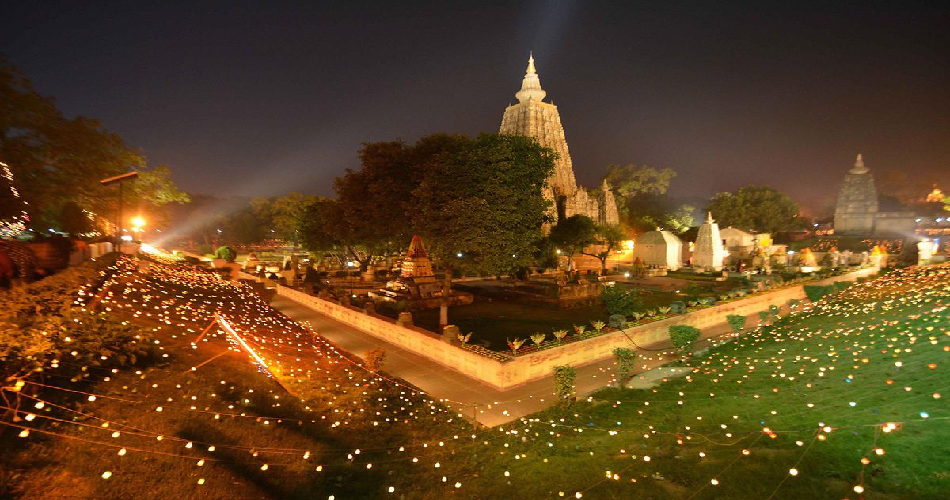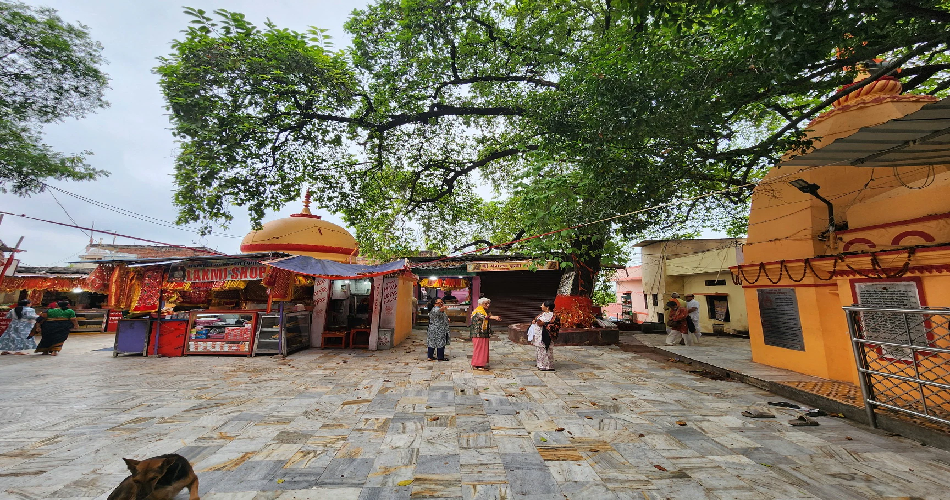
Here’s a 2‑Day Travel Itinerary for exploring Gaya (including Bodh Gaya), along with a detailed table of attractions listed by popularity, average visit duration, and entry fees.
Day 1 – Buddhist Heritage Tour (Bodh Gaya)
6:00 AM – 8:00 AM – Mahabodhi Temple & Bodhi Tree
Start early at this UNESCO World Heritage site where Buddha attained enlightenment. Walk around the temple and meditate under the sacred Bodhi Tree.
8:00 AM – 9:00 AM – Great Buddha Statue
Visit the impressive 25 m sandstone-and-granite statue and its surrounding gardens.
9:00 AM – 10:00 AM – Thai (Wat Thai) Temple
A peaceful Thai monastery offering serene architecture and meditation spaces.
10:30 AM – 11:30 AM – Dungeshwari Caves (Gaya Hills)
Explore the caves where Buddha is believed to have meditated before his enlightenment.
12:00 PM – 1:00 PM – Lunch
1:00 PM – 2:00 PM – Bodhgaya Archaeological Museum
View ancient Buddhist and Hindu artifacts dating from the 2nd century BC to 11th century AD.
2:30 PM – 4:00 PM – Visit Tibetan, Japanese, Chinese monasteries
Wander through various international viharas surrounding Mahabodhi Temple.
4:30 PM – 5:30 PM – Sunset meditation back at Mahabodhi Temple
Catch evening prayers and soak in the spiritual atmosphere.
Day 2 – Hindu Pilgrimage & Historic Gaya
7:00 AM – 8:00 AM – Vishnupad Temple & Falgu River
Visit the sacred Vishnupad Temple on the Falgu River bank, known for the 40 cm footprint of Lord Vishnu.
8:00 AM – 9:00 AM – Pind Daan Ritual Area
Observe ancient ancestral rites being performed at the sangams and platforms in Gaya.
9:30 AM – 10:30 AM – Mangla Gauri Temple
A revered hilltop Shakti temple offering panoramic views and devotional vibes.
11:00 AM – 12:00 PM – Rajendra Tower (Clock Tower)
Explore Gaya’s historic clock tower—built in the early 20th century.
12:00 PM – 1:00 PM – Lunch – Savor local flavors like litti-chokha.
1:00 PM – 2:30 PM – Barabar Caves (30 km away)
Experience ancient Mauryan-era rock-cut caves.
3:30 PM – 4:00 PM – Travel back to Gaya.
4:00 PM – 5:00 PM – Explore Gaya Bazaar & Tibetan Refugee Market
Shop local handicrafts, Buddhist books, and souvenirs.

Attractions at a Glance
| Place | Avg. Time | Entry Fee |
|---|---|---|
| Mahabodhi Temple | 1 h 30 m | Free; ₹100 camera charge |
| Bodhi Tree | 30–45 m | Included with temple |
| Great Buddha Statue | 45 m | Free |
| Thai Temple (Wat Thai) | 45 m | Free |
| Dungeshwari Caves | 1 h | Free; travel cost |
| Archaeological Museum | 45 m | Likely small fee (~₹20–50) |
| Vishnupad Temple | 45 m | Free (donations welcome) |
| Pind Daan area | 1 h | Nominal service fees |
| Mangla Gauri Temple | 45 m | Free |
| Rajendra Tower | 30 m | Free |
| Barabar Caves | 1 h | Entry fee (~₹25); transport cost |
| Gaya Bazaar & Tibetan Market | 1 h | Free to visit (shopping costs vary) |
Travel Tips
- Most attractions are clustered around Bodh Gaya; auto‑rickshaws or taxis are convenient, especially to Barabar.
- Ideal visiting times: sunrise at Mahabodhi and early mornings at Vishnupad/Mangla Gauri.
- Wear modest attire; remove shoes in temple areas.
- If attending Pind Daan or major rituals, check timing and fees in advance.
- Save space for browsing the lively Tibetan market and sample local fare like litti-chokha.
This 2‑day plan lets you deeply explore both Buddhist pilgrimage sites and Hindu spiritual landmarks, balanced with cultural richness and local flavors.
I am a travel writer and regional storyteller dedicated to documenting the culture, heritage, daily life, and travel experiences of Bihar. Through Mera Apna Bihar, I share local insights, real travel stories, and on-ground experiences that highlight the true spirit of Bihar for readers, travelers, and culture enthusiasts.
In addition to regional storytelling, I curate travel narratives and destination experiences through HolidayLandmark Stories, where journeys, city moments, and authentic travel experiences are documented in a story-driven format:
I also manage a growing network of city-focused travel platforms where I regularly publish daily travel logs capturing real-time journeys, local discoveries, and everyday experiences across India:
- Bangalore Orbit – Daily Logs
- Bhopal Orbit – Daily Logs
- Chennai Orbit – Daily Logs
- Gujarat Orbit – Daily Logs
- Kerala Orbit – Daily Logs
- Mera Apna Bihar – Daily Logs
- Mumbai Orbit – Daily Logs
For readers seeking deeper insights, curated content, and structured travel information, I also publish city blogs and destination guides across multiple platforms:
- Bangalore Orbit – Blog
- Bhopal Orbit – Blog
- Chennai Orbit – Blog
- Gujarat Orbit – Blog
- Kerala Orbit – Blog
- Mera Apna Bihar
- Mumbai Orbit – Blog
Through this interconnected network, my goal is to preserve regional stories, promote local culture, and provide authentic travel information that reflects the real experiences of people and places across Bihar and India.